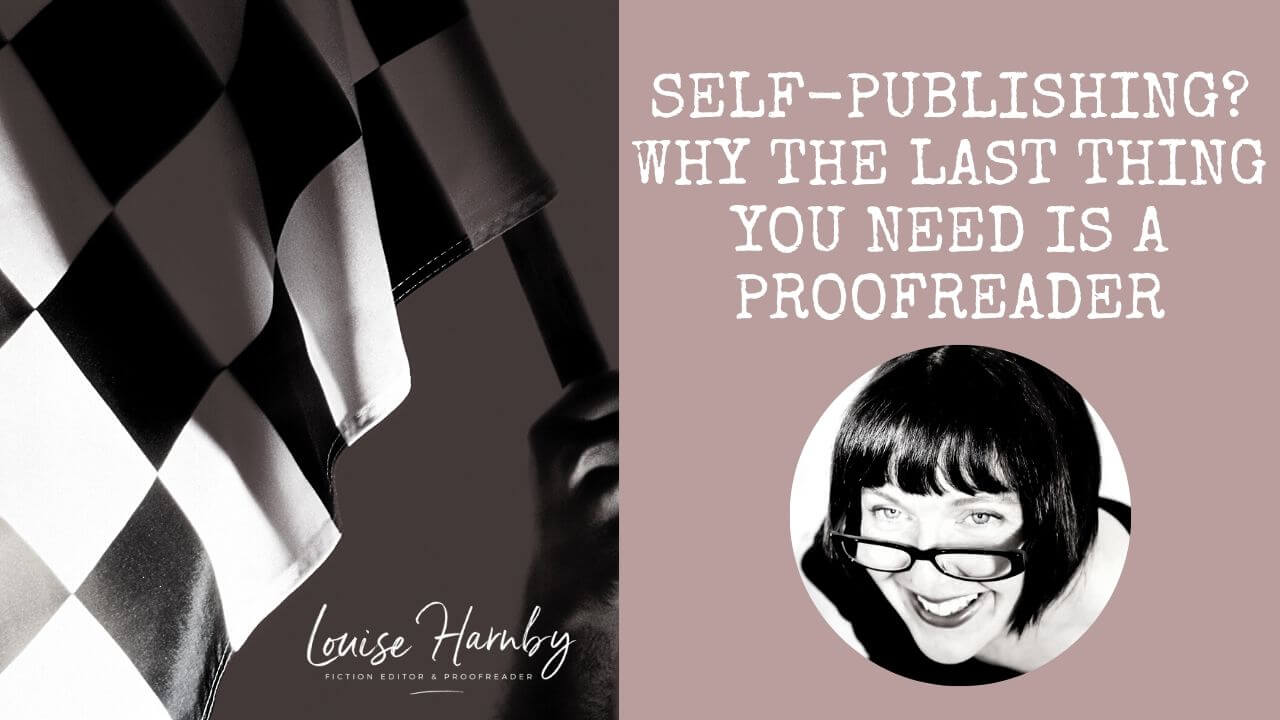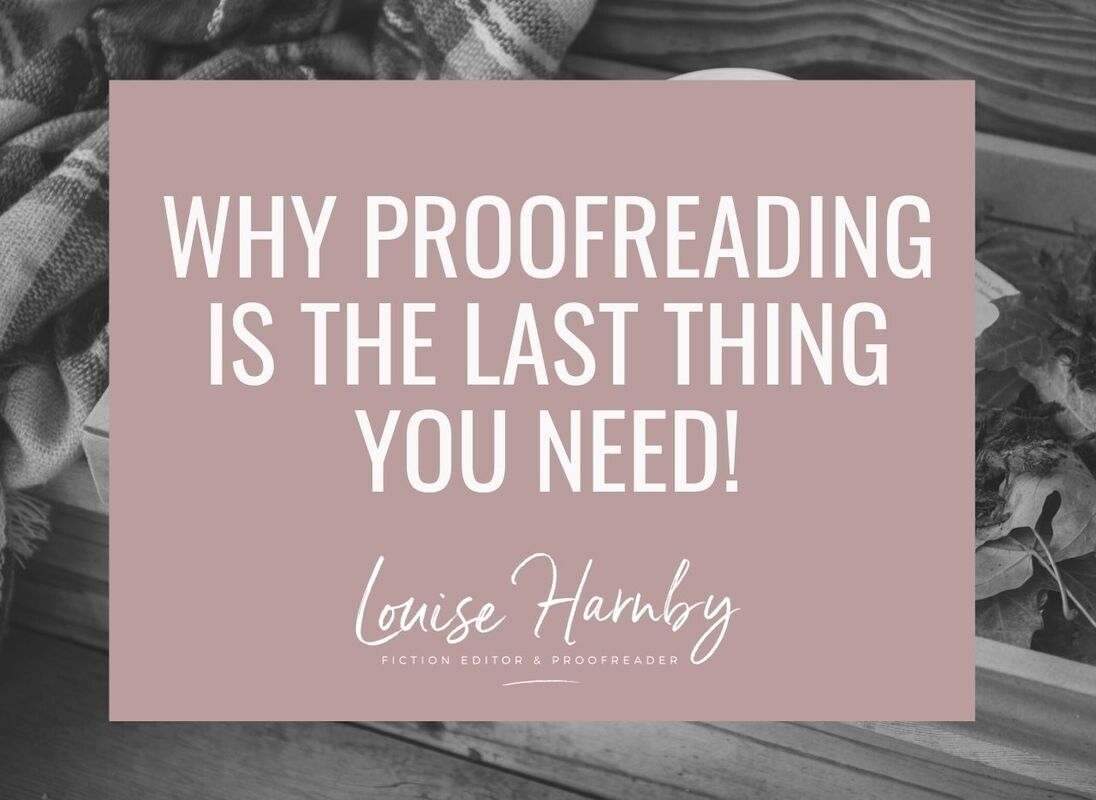|
If you're thinking about self-publishing a book, there 's something you need to know about prepping your prose before you go public: Proofreading is the last thing you need.
Begin on the starting blocks
When I say proofreading is the last thing you need, I mean it literally. Proofreading is the final stage in the editorial process prior to publication. The self-publisher who moves straight from writing to proofreading is trying to win the race by starting on the finish line. And unless you’re an extraordinary self-editor, you’ll be disappointed because it’s likely your book won’t be ready for market. Retain control but mimic the mainstream The beauty of self-publishing is the control you have over the process – you get to write the book you want on your terms. This means:
Still, the mainstream publishing industry knows a thing or two about producing books, and so they should – they’ve been doing it for long enough. And in their production world, proofreading comes last. This isn’t because it’s less important than the previous stages of editing, or easier, or quicker, but because it’s the final quality-control check to pick up what the interior designer, copy-editor, line editor and even a developmental editor missed – anything from an inconsistent character’s name to a misplaced apostrophe, a missing page number to a misspelled word, a rogue paragraph indent to an incorrectly formatted reference. This staged approach to editorial production, carried out by fresh, specialist sets of eyes, increases the likelihood that when the book hits the shelves – even the digital ones – most of the errors will have been fixed. If you mimic the mainstream publishing industry when you self-publish, you reach for the same bar. The different stages of editing When it comes to the different stages of editing, things are complicated by the fact that there are no universally applied terms used within the publishing industry or by the thousands of independent editors and proofreaders. However, what the industry doesn't disagree on is the order. Here's a framework to help you visualize the process: 1. SHAPING
This is the big-picture work that focuses on stuff like structure, plot, pace, narrative point of view and characterization. Terminology varies but look out for the following: developmental editing, content editing, substantive editing, story editing or structural editing.
2. SMOOTHING
This is sentence-level work that focuses on flow, form, readability and engagement. You might hear it called line editing or stylistic editing.
3. CORRECTING
This is sentence-level work that focuses on correct and consistent spelling, grammar, punctuation and layout. It might include fact-checking, too. It’s usually referred to as copyediting.
4. VERIFYING
This is the quality-control stage that picks up anything missed beforehand. This is where proofreading comes into play. If working on designed page proofs, the proofreader will also be checking that the layout matches the brief.
Be realistic: artistry versus wizardry Some new writers think that hiring a round of proofreading will be enough to make their book ready for market. It comes as a shock, not least to the wallet, when they realize what mimicking the mainstream publishing industry will entail. However, I promise you this – a proofreader will not be able to fix 14,000 spelling, punctuation and grammar errors, strengthen the narrative arc, and omit all the wordiness – all in one pass – and hand the file back to the writer with a guarantee of perfection attached to the invoice.
8 tips for self-publishers on a budget Here are some ideas that will help you make the tough decisions. Click on the image to save and download your own copy of the infographic. Last but not least … the proofreader One pass is not enough. Proofreading is an essential part of the self-publishing process, but it’s only one part. Staged editing isn’t cheap – ask any mainstream press – but it’s the surest way to professional self-publishing that turns discerning readers into fans. And fans won’t just buy this book; they’ll buy every book you’ll ever write. Related reading
Louise Harnby is a line editor, copyeditor and proofreader who specializes in working with crime, mystery, suspense and thriller writers.
She is an Advanced Professional Member of the Chartered Institute of Editing and Proofreading (CIEP), a member of ACES, a Partner Member of The Alliance of Independent Authors (ALLi), and co-hosts The Editing Podcast. Visit her business website at Louise Harnby | Fiction Editor & Proofreader, say hello on Twitter at @LouiseHarnby, connect via Facebook and LinkedIn, and check out her books and courses.
4 Comments
5/3/2018 02:14:26 pm
This is a fantastic read, Louise. It's interesting, informative, and easy to understand. Well done!
Reply
Louise Harnby
5/3/2018 02:29:14 pm
Thank you so much, Cassie. High praise coming from you!
Reply
6/3/2018 02:23:52 pm
Great post with a clever title. That image spells out the stages absolutely brilliantly and so clearly.
Reply
Louise Harnby
6/3/2018 04:38:53 pm
Liz, I tried very hard with that title so I'm glad you appreciate my attempt at being sharp! You're a star!
Reply
Leave a Reply. |
BLOG ALERTSIf you'd like me to email you when a new blog post is available, sign up for blog alerts!
TESTIMONIALSDare Rogers'Louise uses her expertise to hone a story until it's razor sharp, while still allowing the author’s voice to remain dominant.'Jeff Carson'I wholeheartedly recommend her services ... Just don’t hire her when I need her.'J B Turner'Sincere thanks for a beautiful and elegant piece of work. First class.'Ayshe Gemedzhy'What makes her stand out and shine is her ability to immerse herself in your story.'Salt Publishing'A million thanks – your mark-up is perfect, as always.'CATEGORIES
All
ARCHIVES
July 2024
|
|
|
|


















 RSS Feed
RSS Feed





